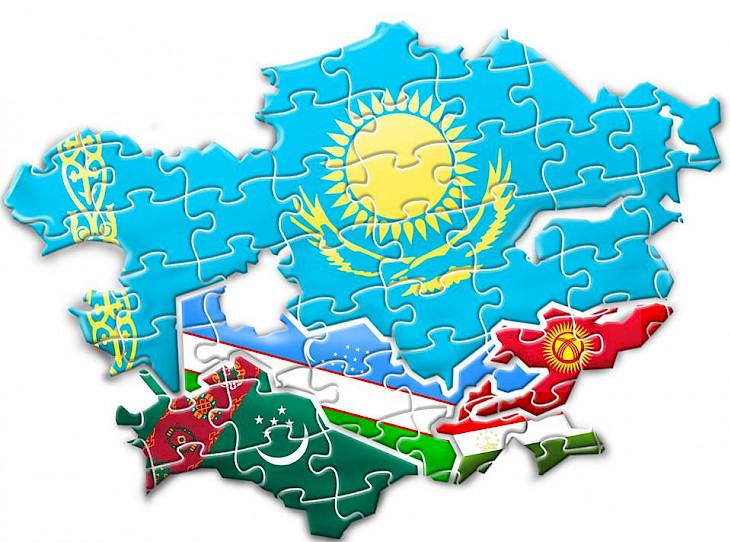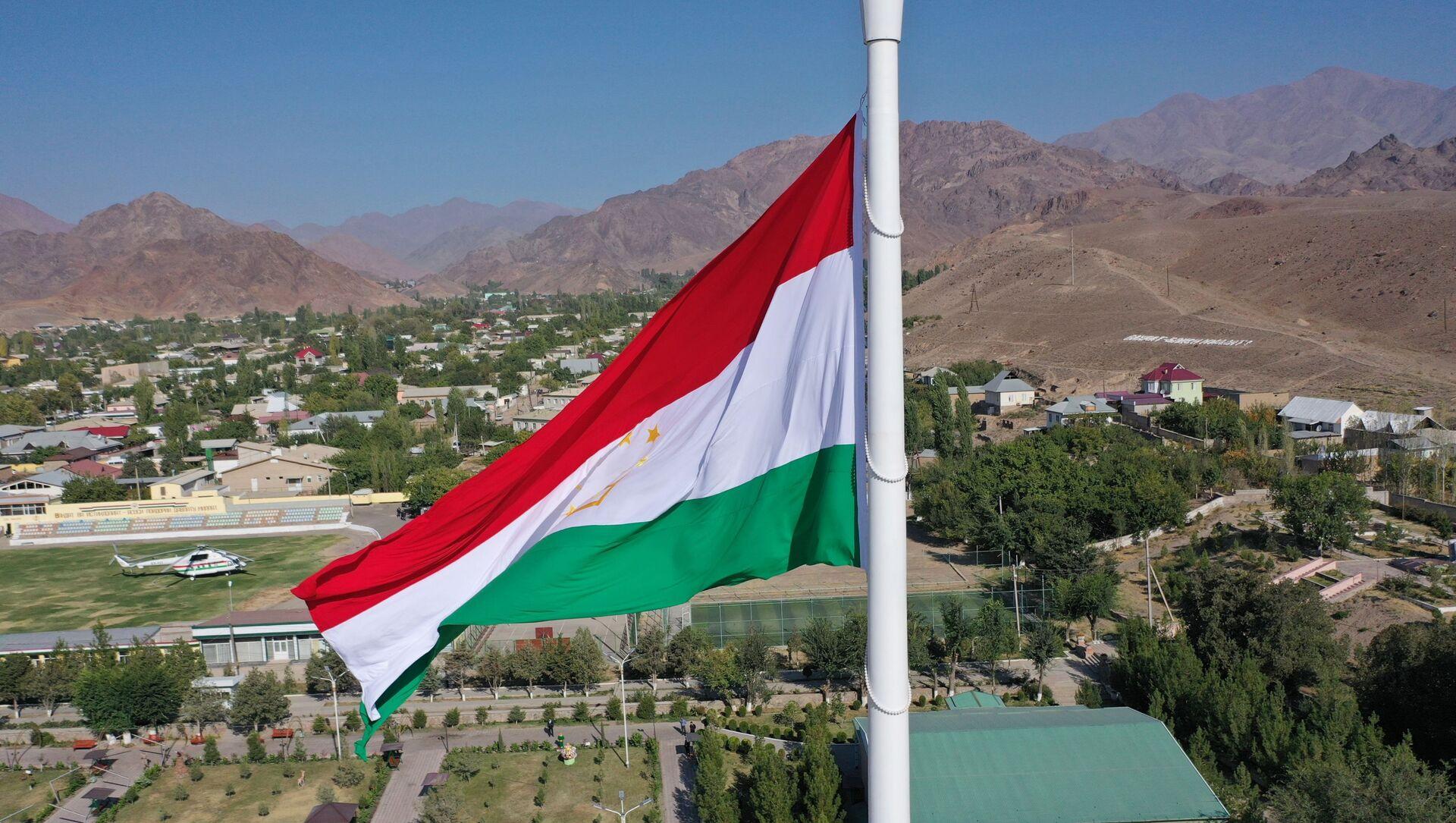“A strike on Tajikistan to affect entire Central Asia” Caliber.Az interview with Kazakh pundit
Caliber.Az had an interview with the President of the East-West International Center for Geopolitical Forecasting, Director of the Association for Political Studies (Kazakhstan), Doctor of Political Sciences, Professor, Karlygash Nugmanova.
- What is your assessment of the latest developments in Tajikistan? What forces are interested in destabilizing the Central Asian region?
- Forecasting the development of the political situation in Tajikistan is a very non-trivial task. I think that the destabilization in Tajikistan is connected with the situation in Afghanistan. There is a geopolitical game with the transmission of Afghan instability to Central Asia.
Clashes between government forces and civil activists in Tajikistan’s Gorno-Badakhshan Autonomous Region have become one of the components of Central Asia’s security. Residents of the region deny their involvement in the riots and violation of law, order and accuse the security forces of harassing them.
In turn, the Tajik authorities do not accept such accusations, calling the fight against armed criminal groups and international terrorists a “counter-terrorist operation”. Perhaps, the so-called fight against terrorism has become a convenient pretext for the country’s government to settle accounts with the recalcitrant and dissenting people.
The use of military force to suppress protests, arrests, torture, and persecution of civilians can ultimately result in the radicalization of society and more large-scale and bloody events.
Therefore, two questions arise. Did the Tajik authorities rapidly declare the Badakhshan protesters as international terrorists? Is there a connection between terrorist groups from Afghanistan and the events in the Gorno-Badakhshan Autonomous Region? I think that the country splits.
- May the second front open in Central Asia?
- I think it is quite probable. The current Afghan administration, due to the tough position of the Tajik president against the Taliban movement and support for the young leaders of Panjshir, will not restrain the radicals of the Islamic State, Al-Qaeda, and Ansarullah who will try to break into the Fergana Valley.
The tragedy of the Gorno-Badakhshan Autonomous Region, which claimed the lives of innocent people, is a small wave, however, a tsunami is expected to occur, an ocean wave that can lead to a large-scale collapse. The mutiny was a false start as it is a planned scenario. I focus on the paradigm that the rebellion of the Pamiris did not start without support, without the beneficiaries’ assistance.
Of course, I do not deny the quiet social discontent and disbelief of the Pamiris in the state and its model of justice and fairness. Therefore, acute moments cannot be supported by the old tools, as the world with paradoxical logic has been built today. This is the new normal world in the spirit of modern neo-globalists and transhumanists, in which there is no logic. War is peace, lies are truth, a woman is a man.
However, on the other hand, we are well aware that the concept of "fighting terrorism" is often interpreted in very broad terms. This is a pretext to suppress the opposition or political opponents in general. Thus, the connection between the fight against terrorism and domestic political dynamics is revealed every time, while the problems of stability are closely connected with both external and internal factors. I do not rule out that the protest mood of the Pamiris were also provoked by Jihadist groups. Everything related to the Sunni-Shiite confrontation, which affects everyone, is also a conflict factor, and each camp is trying to attract Central Asia.

Tajikistan is the most vulnerable country in terms of security, which has a long common border with Afghanistan, partly passing through difficult mountainous terrain.
Moreover, Tajikistan is the only country in Central Asia that is greatly dependent on the situation in Afghanistan and more than other regional countries is subject to attacks from transnational, radical, religious organisations. The blow, which was aimed at Tajikistan’s Gorno-Badakhshan Autonomous Region, as a result, will affect the entire Central Asia.
The ongoing regrouping of Jamoat Ansarullah movement, consisting of Tajik people, on the Afghan coast of the Panj river, is aimed and focused on creating chaos on the southern borders of the Central Asian countries. Therefore, as I have already said, the second front may be opened in Central Asia proceeding from the activity of the Islamic State, Al-Qaeda, and Ansarullah groups in Tajikistan’s Gorno-Badakhshan.
- Is there a connection between the events in Kazakhstan’s Almaty in January 2022 and the events in Tajikistan’s Khorog and Rushan Districts?
- The threats and risks are insignificant for Kazakhstan due to its geographical remoteness from Afghanistan than for any other Central Asian country. However, a breakout by militants into the Ferghana Valley could also have a negative impact on Kazakhstan because its southern territory is closely connected with the rest part of Central Asia.
In case of an unfavorable scenario, destabilization in the Central Asian countries bordering Afghanistan may go beyond their borders and directly or indirectly affect Kazakhstan’s interests. The Islamisation and religious extremism also affect our country. The danger is posed because Islamists may use social discontent. Therefore, I think that there is a certain connection between the January events in Almaty and the events in Khorog and Rushan Districts.
- Do not you exclude the reoccurrence of Kazakhstan’s scenario in Tajikistan?
- The redistribution of world assets was launched in Kazakhstan in January 2022.
The Almaty tragedy clearly showed that counter-revolutionary fundamentalists (Salafist movement) intensified terrorist propaganda and related radical ideology, including religious extremism, incitement to terrorism, as well as recruitment into the terrorist and extremist organisations.
The emergence of such forces is based on the social aspect, it is correlated with the religion and identity of the nation, so the fight against these forces is our main task in terms of ensuring security in Central Asia.
The Taliban militants who have infiltrated Central Asia are hiding in the Fergana Valley, and plan to commit terrorist acts against the Central Asian countries, so Central Asia will face a threat of penetration of international terrorist forces from Afghanistan for a long time.
The main security challenges in Central Asia will result from internal social and economic problems, and temporarily inactive jihadist groups will take advantage of this destabilization. A massive flow of refugees from Afghanistan, which could result in uprisings, coups, and civil wars in Central Asia, can also be considered a risk associated with this phenomenon.
- May the Collective Security Treaty Organisation’s (CSTO) troops enter Tajikistan?
- I think that proceeding from such a situation, the intervention of the CSTO and Shanghai Cooperation Organisation (SCO) allies may be required, which will increase social and economic tension in all Central Asian countries, although the Russian military presence in the current situation is not observed.
However, Central Asia’s opinion that Western military organisations will be more effective in terms of protection against external and internal threats than CIS (CSTO, etc.) may also turn out to be an illusion. Tension will be intensified along the entire border between Afghanistan and the Central Asian countries (mainly Tajikistan). That is, the process of sending the terrorist subversive groups will be intensified.

There is a threat of spreading ideas of religious extremism, separatism, drug trafficking, transnational crime, and illegal migration. In this situation, while acting alone, the Central Asian countries will be unable to ensure security at their borders, so it is necessary to involve regional integration institutions. The problem of the geopolitics of the Central Asian region is relevant, so it is important for each regional country to determine its development in terms of its geostrategic preferences and in terms of internal development.
From a security point of view, perhaps, the most undesirable developments in Central Asia are the revival of the so-called "Great Game" in the region, that is, the fierce competition of the great powers for regional influence. New conflicts and chronic instability may be observed in the region. The problems with development may aggravate.
- Do the Central Asian countries have an agreed action plan to counter all these risks?
- Hypothetically, proceeding from the logic of the process, the global players are directly interested in Central Asian countries, Kazakhstan is in the heart of the Central Asian region. The transnational dynamics of world politics exacerbate the aggravated situation with the security in Kazakhstan.
The emergence of acute conflict may prompt the Central Asian countries not only to re-provide their own armies with military equipment, strengthen their borders, and create a new package of measures for both emergency and medium-term response to threats, but also to reform their economy, social spheres of life, create new humanitarian initiatives, thereby ensuring stability.
Resistance to Islamic fundamentalism and extremism, the threats emanating from Afghanistan through the Fergana Valley, depends on the nature of the coordinated geopolitical strategy of Central Asia.








